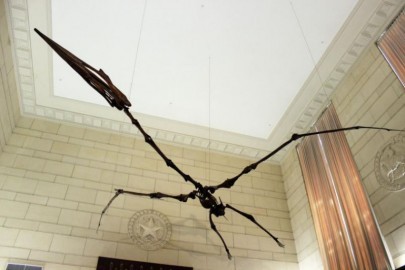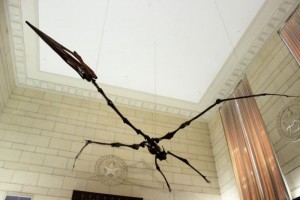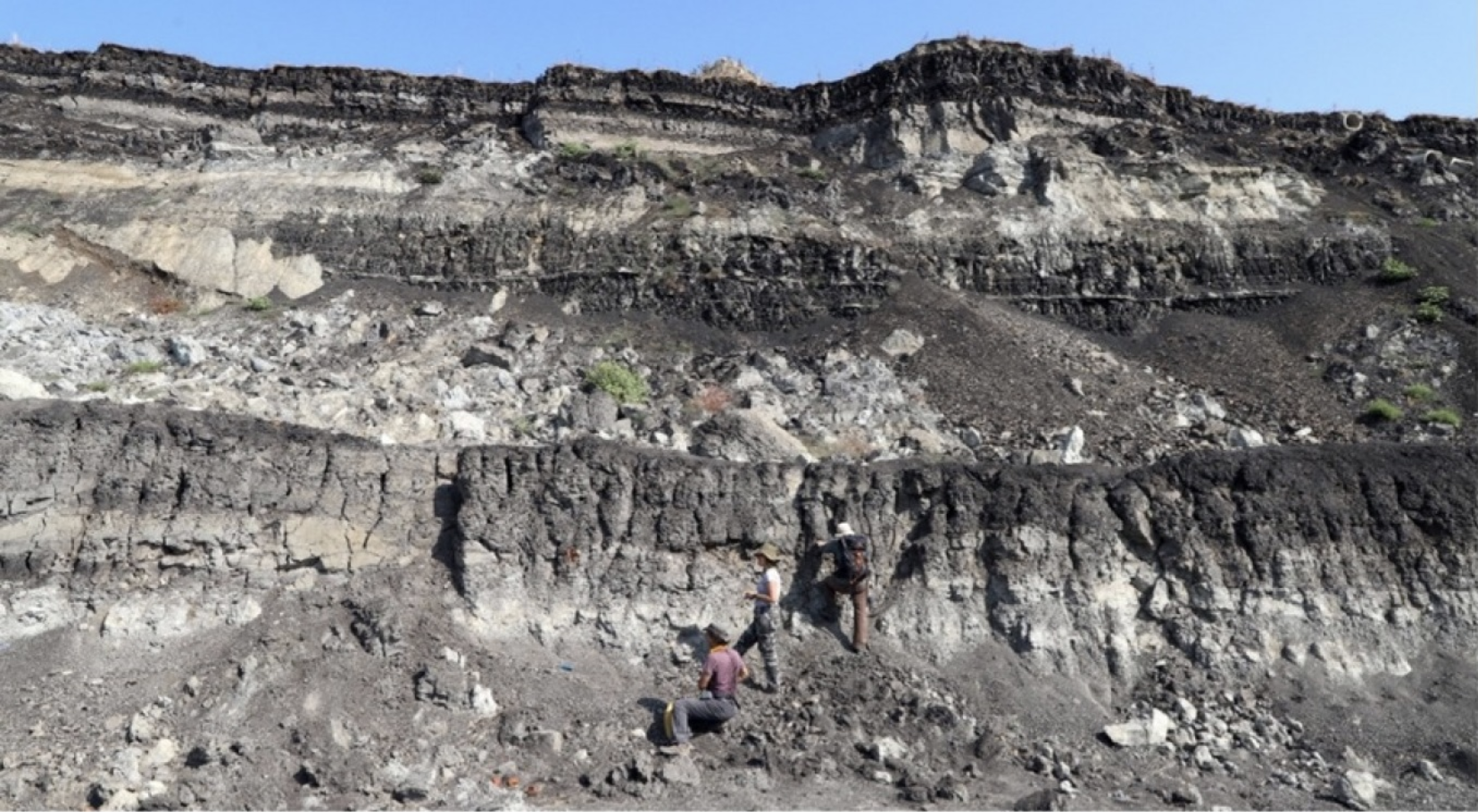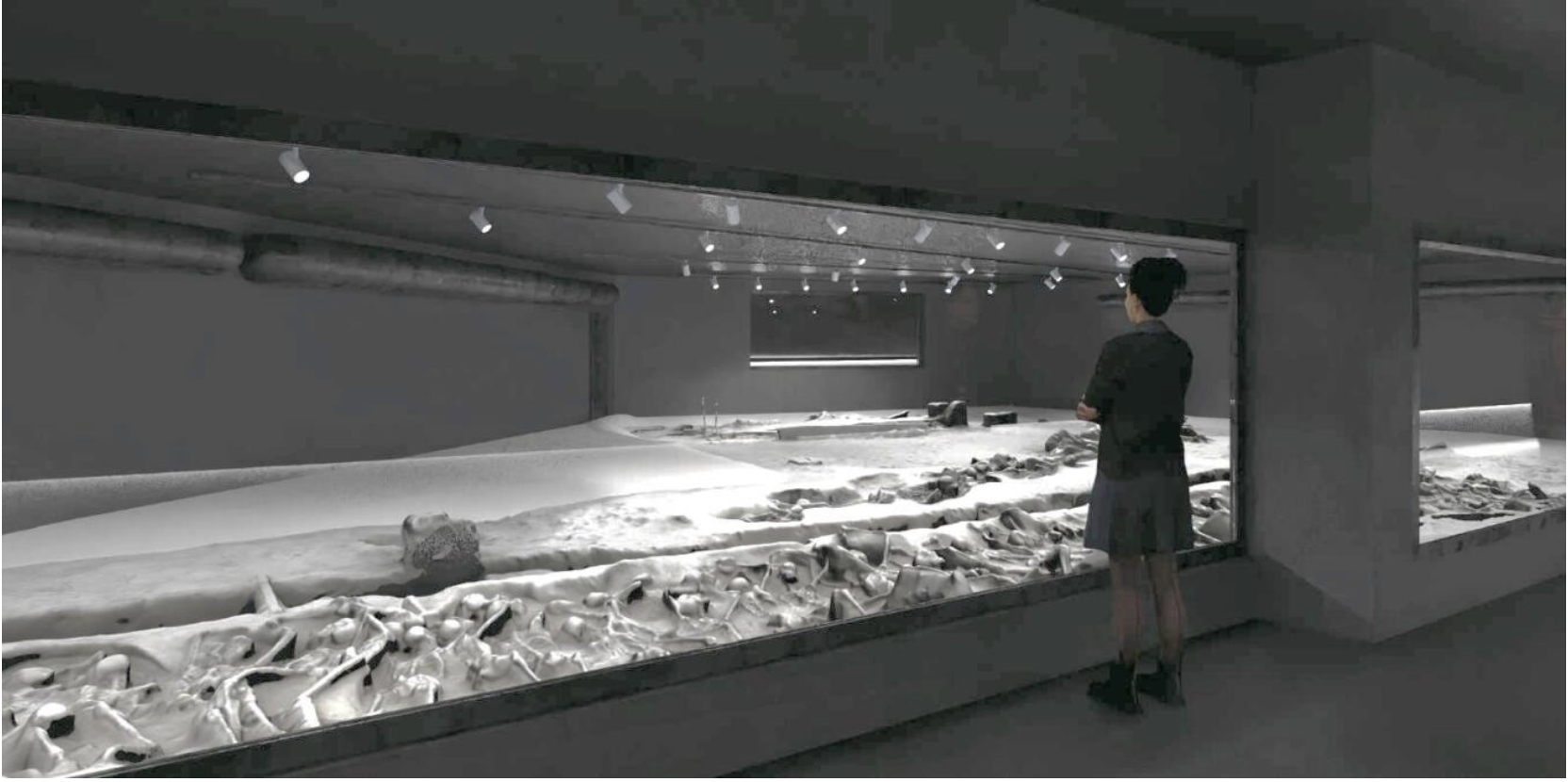Seventy million years ago, a dragon-like creature ruled the skies above Mongolia. This pterosaur—a member of the order that includes pterodactyl—had the wingspan the size of a small plane, could launch off the ground in seconds, and may have even eaten baby dinosaurs.
Imagine a long-beaked monster, tall enough to see eye-to-eye with a giraffe, but flying through the sky. That is the animal that paleontologists have discovered, inferred from 5 pieces of neck bones found in the Nemegt formation of the Gobi Desert.
A paper published recently in the Journal of Vertebrate Paleontology describes a “gigantic pterosaurian” known only from its enormous neck bones. While estimating the size and shape of an animal based only on cervical vertebrae is difficult, it was clear that they were similar to the vertebrae of other huge pterosaurs. Therefore paleontologists could infer that the animal was in the family Azhdarchidae, which includes Quetzalcoatlus. Quetzalcoatlus, which was discovered in 1971, had an estimated wingspan of 33 to 36 feet, or about as long as a telephone pole.
This newly-discovered animal was estimated to be of similar size to the famous Quetzalcoatlus, making it among the largest animals to have ever flown. However, because only the neck vertebrae of one individual is known, they could have been smaller or larger on average. The huge neck vertebrae could indicate that the animal was proportionally larger than other azhdarchids. However, it’s also possible that it simply had a heavy, thick neck, disproportionate to the rest of its body. If it was much bigger than Quetzalcoatlus in total body size, it may have been too big to fly.
The new animal does not yet have a name.
This discovery is especially interesting because pterosaurs of this family have never been found before in Asia. That means that the range of the group of animals extends from North America and Europe to Asia, completely changing the narrative of where these types of animals would have lived in the age of the dinosaurs.
Pterosaurs were winged reptiles, not dinosaurs, although they lived at the same time as dinosaurs and they share the clade Archosauria. Similarly, plesiosaurs were giant marine reptiles in the archosaur group that lived in the dinosaur age, but were not dinosaurs. All three groups of animals—land, sea, and air—went extinct at the same time, with the exception of avian dinosaurs, or birds. So, despite the extinction of pterosaurs, the archosaur clade rules the skies once more.
Source: yahoo.com
Ask me anything
Explore related questions






